Enhance comprehension Reading Worksheets for Ages 3-7
6 filtered results
-
From - To
Unlock the potential of young readers with our "Enhance Comprehension Reading Worksheets" designed for ages 3-7. These engaging and interactive worksheets support early literacy development by focusing on essential skills like story understanding, vocabulary building, and critical thinking. With a variety of fun activities, children can practice identifying story elements, following sequences, and answering comprehension questions that deepen their understanding. Our resources cater to different learning styles, making reading a joyous experience. Perfect for parents and educators alike, these worksheets are a valuable tool to foster a love for reading while equipping children with the skills needed for lifelong learning.
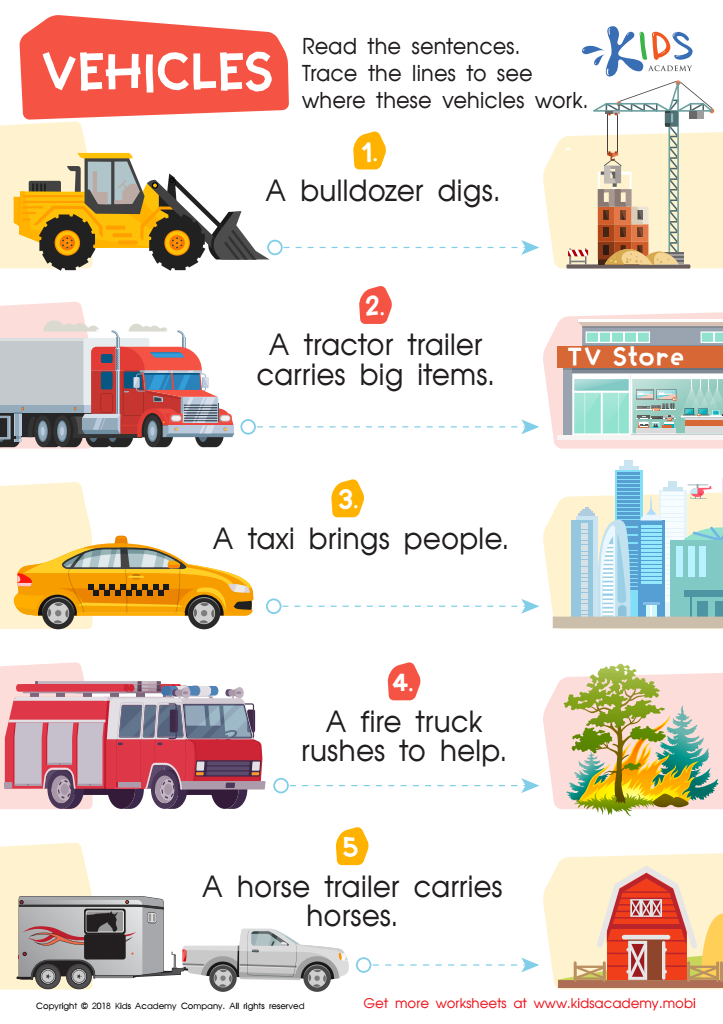

Vehicles Worksheet
Enhancing comprehension skills in children aged 3-7 is vital for their overall literacy development and academic success. During these formative years, children's brains are highly receptive to learning; thus, providing them with strong reading skills lays the foundation for future educational achievements.
Comprehension is not just about recognizing words but understanding the meaning and context behind them. When parents and teachers emphasize comprehension, they help children gain confidence in their reading abilities, engage with texts more deeply, and develop critical thinking skills. These skills are essential for success in all subjects, as reading is a key mode of learning across the curriculum.
Moreover, fostering a love for reading at an early age nurtures curiosity and imagination, encouraging children to explore new ideas and cultures. This early passion for literature directly influences their lifelong learning habits and can lead to greater academic motivation.
Additionally, enhanced comprehension promotes better communication skills, as children learn to articulate their thoughts and ask pertinent questions about the material they encounter. In a rapidly evolving world, the ability to understand and analyze information is more important than ever, making it crucial for parents and teachers to prioritize these skills in young learners.

 Assign to My Students
Assign to My Students
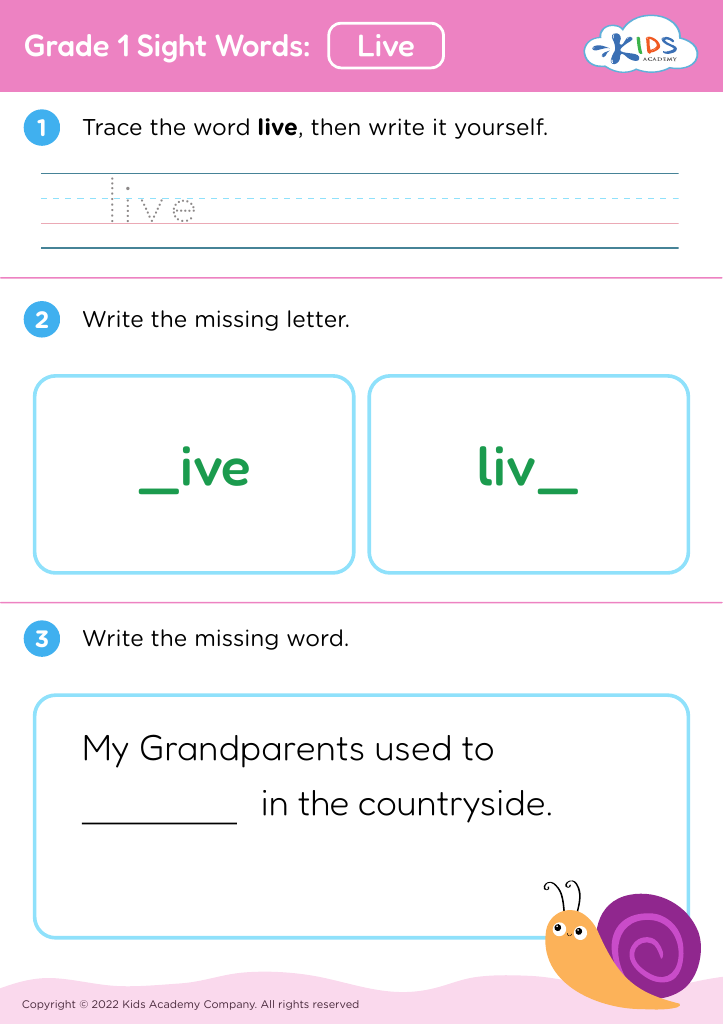

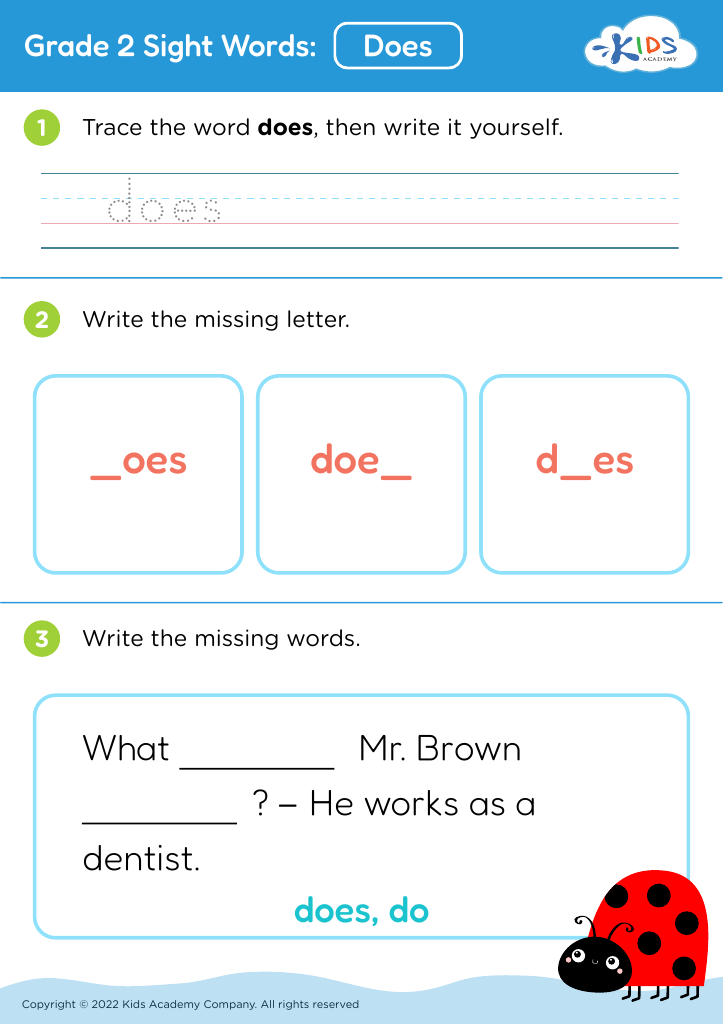
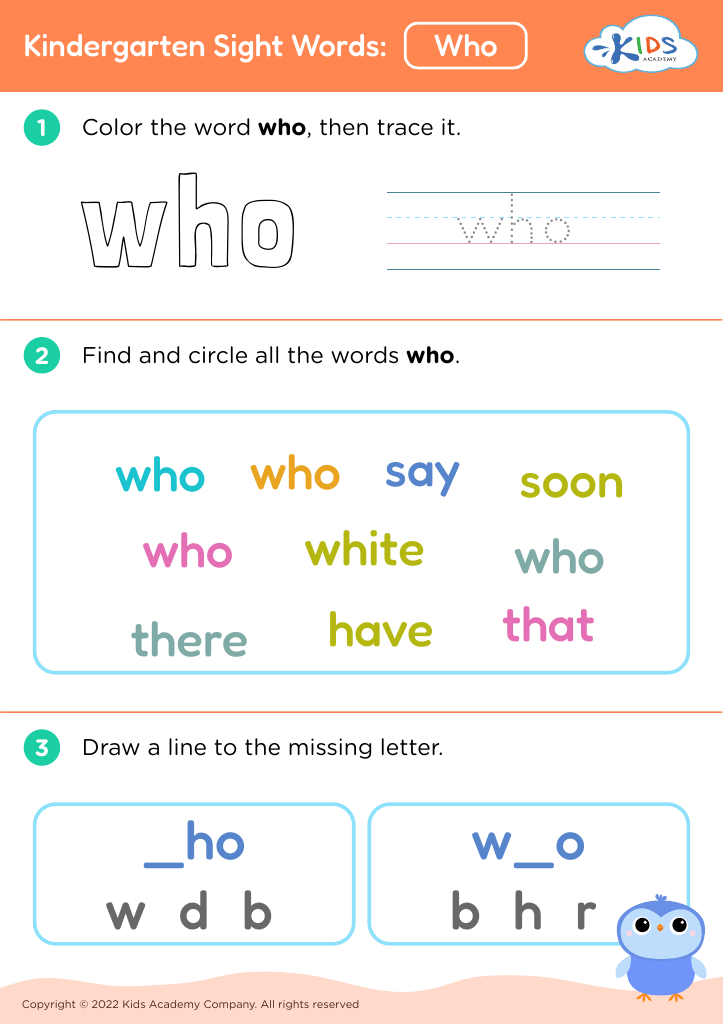
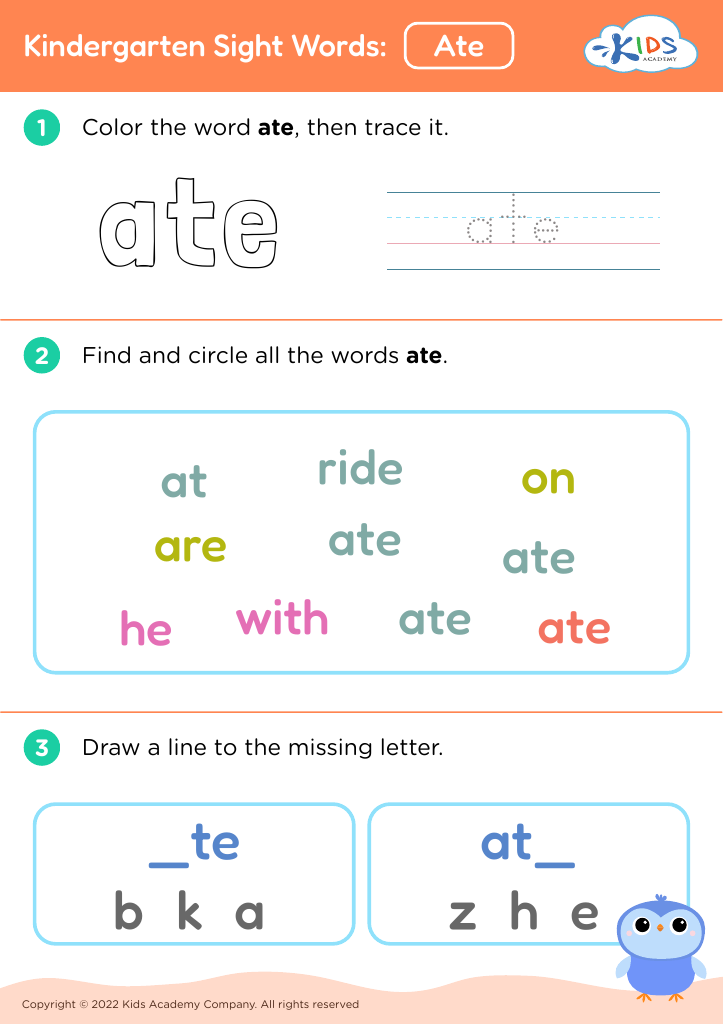


.jpg)













